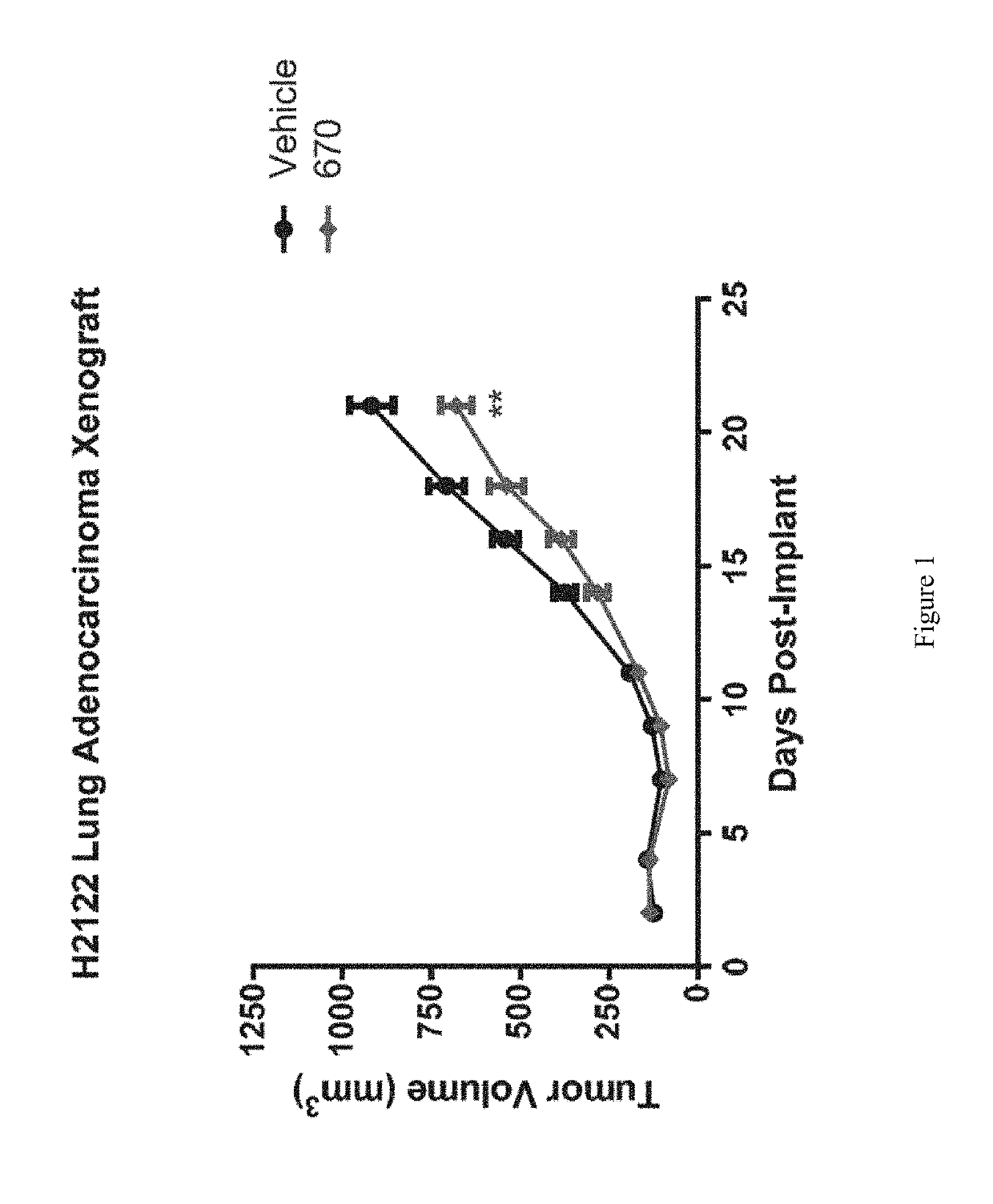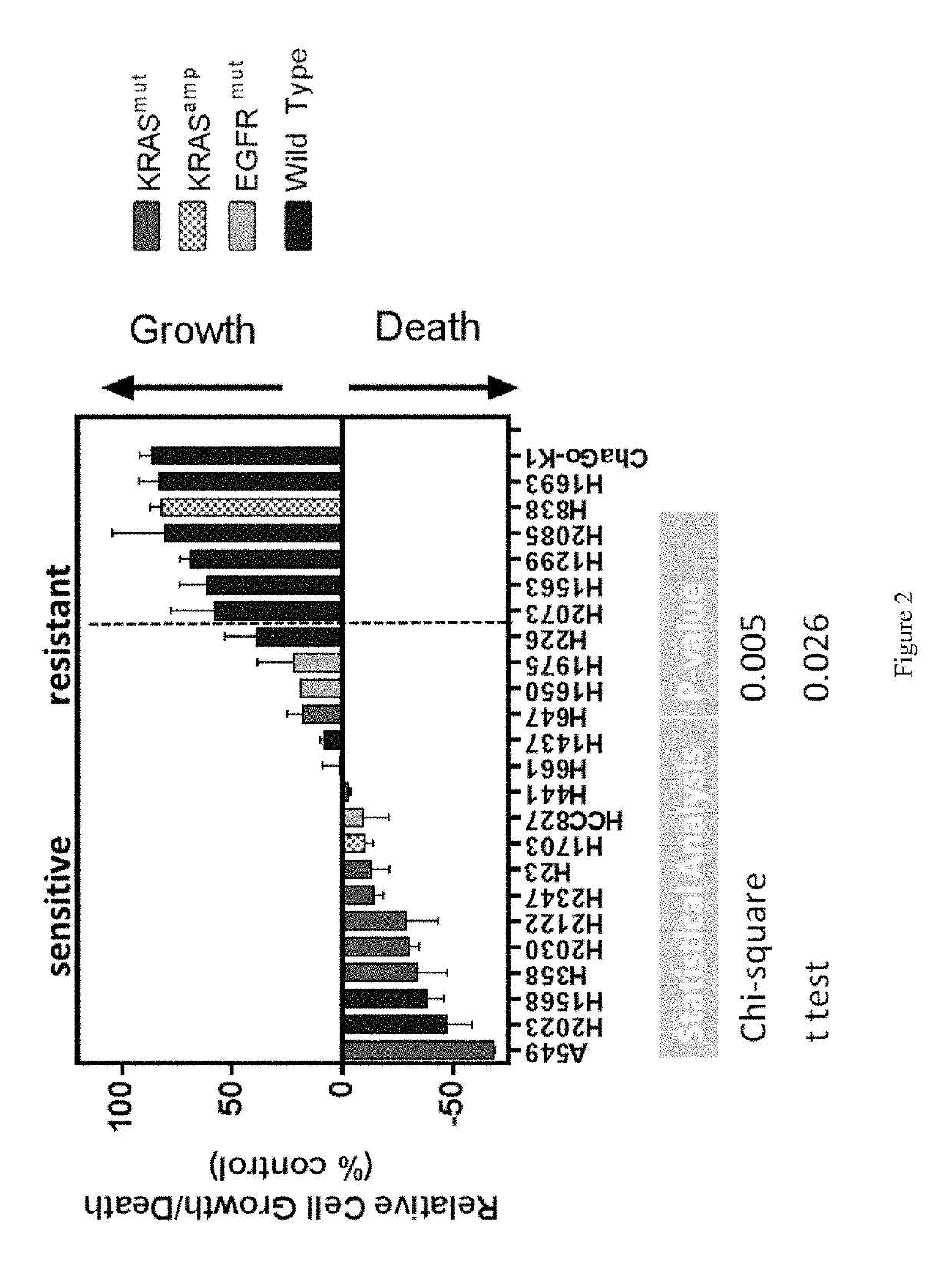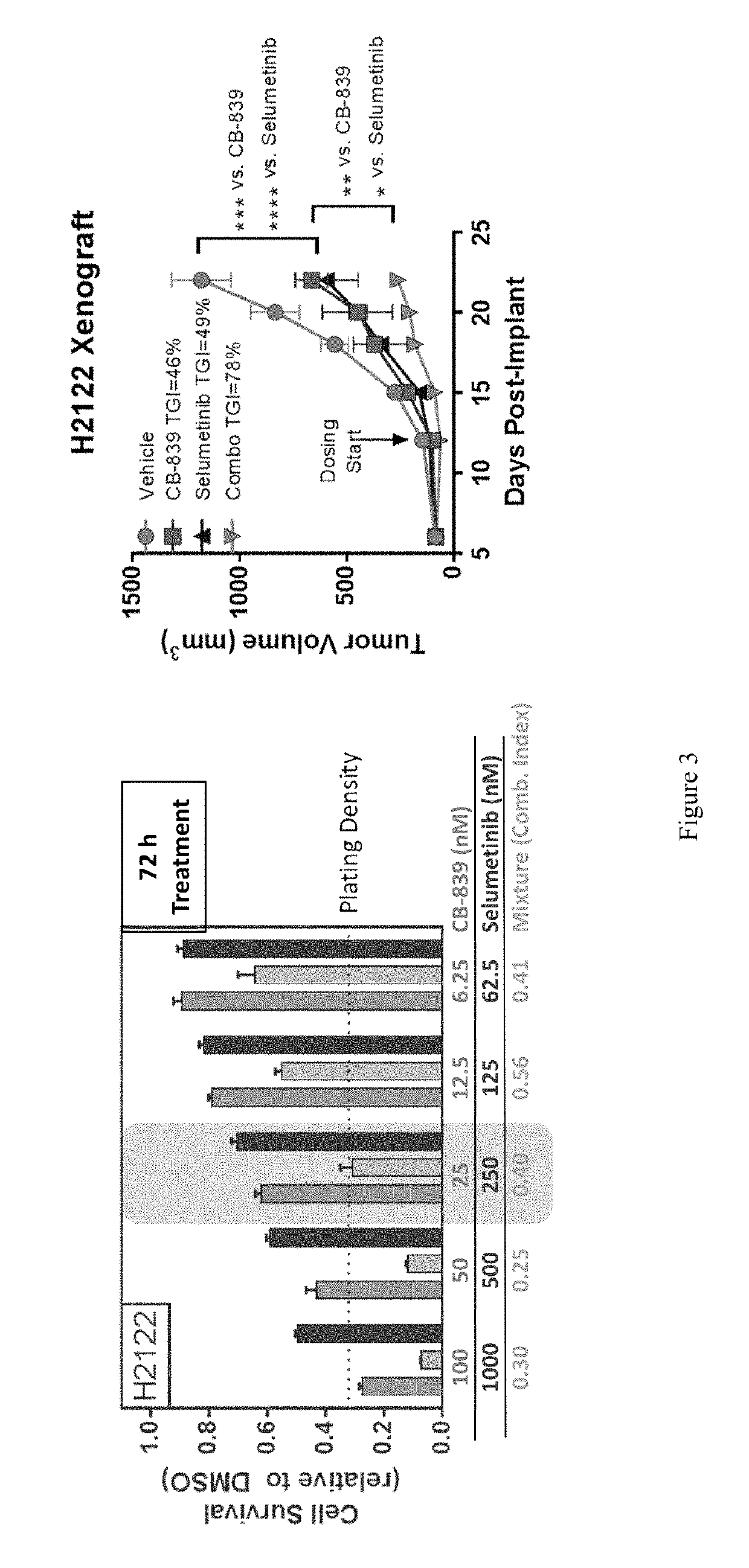Treatment of lung cancer with inhibitors of glutaminase
a glutaminase inhibitor and lung cancer technology, applied in the direction of biochemistry equipment and processes, organic active ingredients, drug compositions, etc., can solve the problem that the validation of this target has been impossible with suitable glutaminase inhibitors, and achieve the effect of reducing tumor siz
- Summary
- Abstract
- Description
- Claims
- Application Information
AI Technical Summary
Benefits of technology
Problems solved by technology
Method used
Image
Examples
example 1
Lung Adenocarcinoma Xenograft Efficacy Study
[0326]Female scid / beige mice (n═20) age 6-8 weeks were implanted subcutaneously with 1×107 H2122 lung adenocarcinoma cells per mouse suspended in PBS. Mice were randomized into the following two groups of n=10 mice / group: 1) Vehicle control (25% Hydroxypropyl-β-cyclodextrin) and 2) Compound 670 dosed orally at 200 mg / kg (formulated at 20 mg / mL in 25% HP-β-CD). For both groups, dosing was initiated 24 hours post-implant and continued orally BID for 23 days. Tumors were measured with calipers three times per week and tumor volume calculated using the formula tumor volume (mm3)=(a×b2 / 2) where ‘b’ is the smallest diameter and ‘a’ is the largest perpendicular diameter. **P-value<0.01 (Two-sided T-test). Results are shown in FIG. 1.
example 2
Activating Mutations in KRAS or EGFR Predict Sensitivity of Compound 670 in NSCLC
[0327]As shown in FIG. 2, non-small cell lung cancer cell lines exhibiting a KRAS mutation were typically more sensitive to treatment with compound 670 (CB-839) than wild-type nscic cell lines, with higher occurrences of arrested growth and / or cell death.
[0328]Sensitivity to compound 670 (CB-839) is correlated to the presence of KRAS and EGFR mutations for a number of non-small cell lung carcinomas, as shown in Table 3.
[0329]
TABLE 3EGFR / KRAS mutations and sensitivity to glutaminase inhibitorsSensitivity to CB-839KRAScell lineaverageSEMnKRASAMPEGFRA549 (CALA)−68.5650.2062KRASno ampwtG12SH2023 (CALA)−4711.5333wtno ampwtH1568 (CALA)−388.0734wtno ampwtH358 (CALA)−3413.224KRASno ampwtG12CH2030 (CALA)−304.583KRASno ampwtG12CH2122 (CALA)−28.63714.6355KRASno ampwtG12CH2347 (CALA)−144.163KRAS L19Fno ampwtH23 (CALA)−138.0524KRASAMPwtG12CH1703 (CALA)−103.7644wtAMPwtHCC827−911.933wtno ampEGFR(CALA)exon 19deletionH4...
example 3
Co-Administration of Glutaminase Inhibitor and Anti-Cancer Agent
[0331]Cells were treated with a dose titration of either CB-839, an anti-cancer agent or a mixture thereof for 72 hours in growth media. At the end of the incubation, cell viability was measured using Cell Titer Glo as per manufacturer's protocol (Promega, Madison, Wis.). Cell proliferation for all compound treatments are represented as bar graphs, where luminescent output, Relative Light Units (RLU), correlates with viable cell number. Combination indices were calculated using the Calcusyn program (biosoft.com) and reported for individual mixtures of CB-839 and each agent. Results for combination therapy are shown in FIG. 3.
PUM
 Login to View More
Login to View More Abstract
Description
Claims
Application Information
 Login to View More
Login to View More - R&D
- Intellectual Property
- Life Sciences
- Materials
- Tech Scout
- Unparalleled Data Quality
- Higher Quality Content
- 60% Fewer Hallucinations
Browse by: Latest US Patents, China's latest patents, Technical Efficacy Thesaurus, Application Domain, Technology Topic, Popular Technical Reports.
© 2025 PatSnap. All rights reserved.Legal|Privacy policy|Modern Slavery Act Transparency Statement|Sitemap|About US| Contact US: help@patsnap.com



